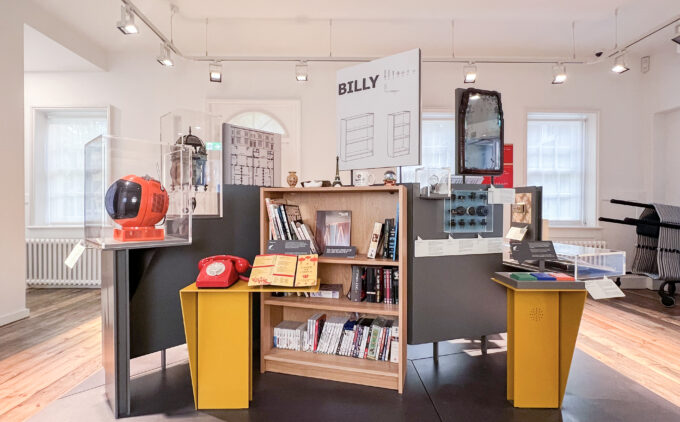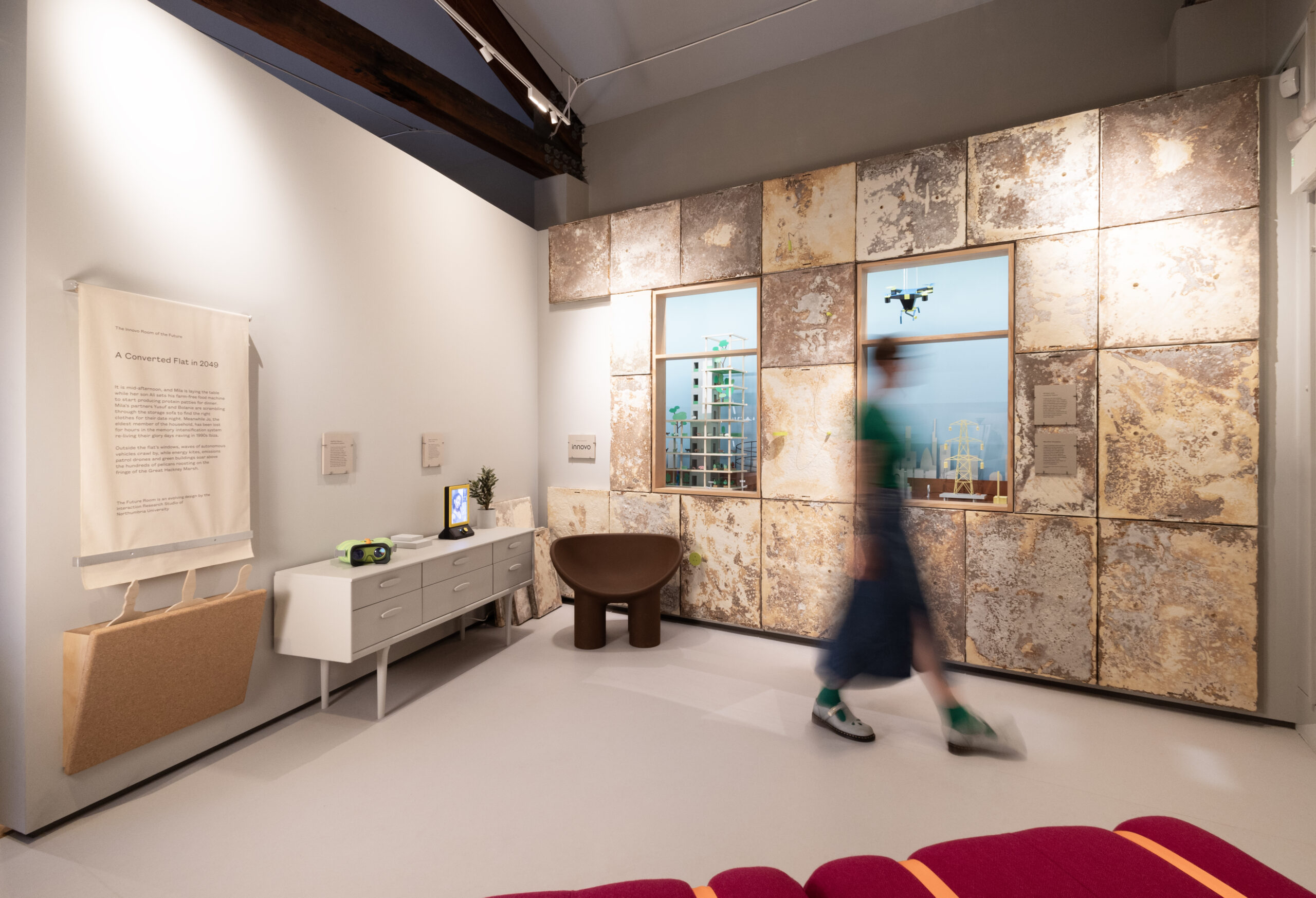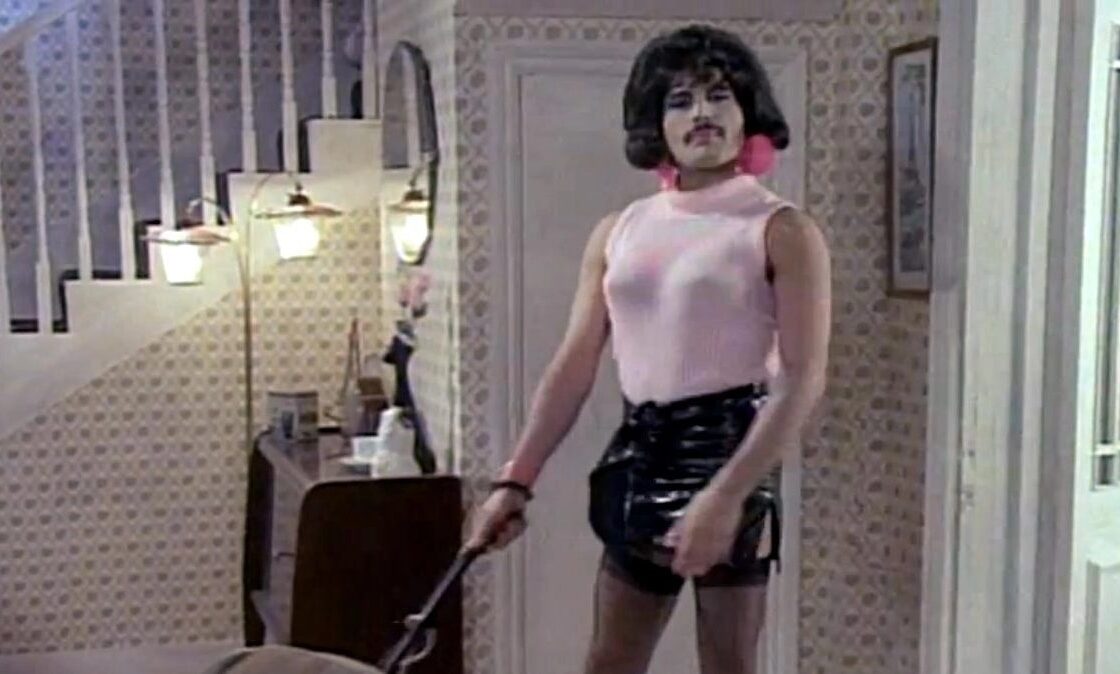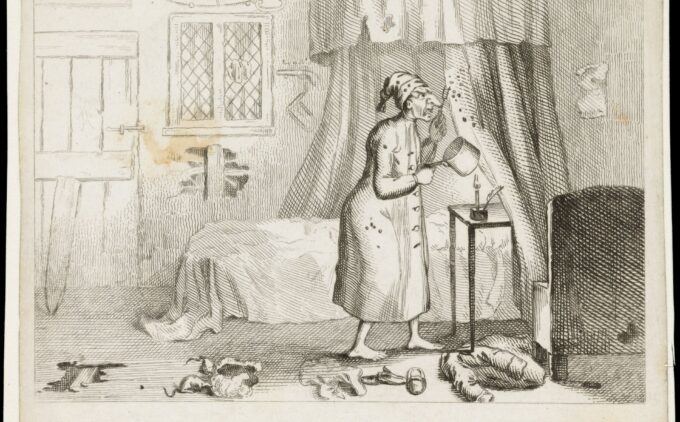It’s been over 40 years since the release of Queen’s top ten single I Want to Break Free. Its iconic video featured the band in drag, and the most prominent deployment of a vacuum cleaner in rock history.
On its release in 1984, this domestic satire, which drew on British soap opera and bawdy pantomime, was greeted with a mix of amusement and controversy.
Do contemporary viewers still take delight in an all-male band in highlighting the lack of opportunities for working-class women? Is the video cruel or is it kind? Either way, as gender politics continue to play out in households around the world, I Want to Break Free still has something to say about the stubborn stereotypes that surround housework.
Women, technology and the home
The video begins in a street of terraced housing, filmed in Leeds and inspired by the opening credits of Coronation Street. TV aerials on the roofs remind us that in the 1980s, soap operas were beamed into millions of homes around the country several times a week.
Brian May’s character, loosely based on curler-wearing soap favourite Hilda Ogden, wakes up to the boiling of a teasmade. These automatic tea-makers incorporated an alarm clock and enabled a brew-obsessed nation to enjoy a quiet cuppa under the duvet before the relentless demands of the day kicked in.
They were extremely popular in the 1960s and 70s, signifying luxury and convenience, before becoming a suburban cliche. May’s teasmade bursts into flames, suggesting the release of pent-up energy and an explosion of the myth that technology liberates women from the drudgery of housework.
Enter another domestic game changer: that vacuum cleaner. Freddie Mercury’s appearance is preceded by a bucking 1950 Hoover 119 Junior. The machine seems to have a life of its own. In reality, the upright model, popular for decades, was heavy and awkward by modern standards.
The mental load
So what impact has technological innovation had on the lives of women?
Domestic gas, electricity and water supplies have transformed household chores. Today, our lives are no longer dictated by relentless, back-breaking household chores, but there still seems to be a lot to do. Has technology just raised standards of cleanliness and accelerated everyday life?
Even if women are no longer bearing the bulk of housework (and many statistics suggest that they are), society recognises the impact of the mental load: the bulk of responsibility for thinking and planning domestic life still falls to women.
Others argue that being busy has become a mark of pride and status. The mindful cleaning approach, finding meaning in mundane chores, further complicates the matter. And what if you enjoy housework? Maybe it’s a choice, maybe you have no desire to break free, and that’s fine too.
Boredom
If Queen’s video is anything to go by, women might be bored, unsatisfied with their relationships and lacking options, but they’re not particularly overworked.
Freddie Mercury’s character is the exception. Inspired by Coronation Street barmaid Bet Lynch, he’s a whirlwind of sexually-charged domestic energy. Seemingly unhindered by a leather mini-skirt and high heels, Mercury’s ambiguous sexuality adds to the impact of his appearance.
The other characters appear at leisure. John Deacon’s Ena Sharples tuts over a tabloid newspaper, while Brian May flicks nonchalantly through a vintage women’s magazine. Roger Taylor’s schoolgirl, the most problematic stereotype in the video, engages in some light washing-up and distracted homework.
Prancing around the living room, Mercury dusts off these three ages of woman: maid, mother and crone, all seated in the front room, wanting to break free with little urgency. Is their oppression based on the relentless demands of the domestic environment, the ennui of the housewife, the lack of opportunity outside the home, or all of the above?
Liberation
Eventually, Mercury is liberated by returning to his masculine persona. First, he appears as a topless rock god, surrounded by slow-marching miners (the video was released at the height of the miners’ strike); then as a Nijinsky-inspired faun, who breaks free completely to indulge in a place of abstract gratification.
Grape-guzzling orgies and lithe-limbed crowd-surfing might not be everyone’s idea of freedom. And this is the key message of the video, as Mercury sings, “life still goes on”.
Having explored clichés of liberation, the rock and roll adoration and the revel, predictable domestic life still holds an attraction, in Mercury’s words: “it’s strange but it’s true”. Maybe it’s not about breaking free, maybe it’s about staying put and making everyday life better.
What next?
We still haven’t completely overturned the gender stereotypes satirised in Queen’s video. But how much has changed in our homes, and what reception would the video have if it were made and released today?
There have been significant shifts in working patterns, household set-ups and gender equality since 1984. The digital age may bring even greater changes, either through AI-powered homes or cyberfeminism, and it will be interesting to revisit Queen’s video in another 40 years.
What still matters is the staging of debate within the domestic environment and the enduring relevance of questions around housework and identity.
Today, the fantasy under the stairs that we escape to might simply be a world of shared domestic responsibility, regardless of gender. Housework could be something that we all just do when we can, rather than something that defines us.
Discover more

Domestic Game Changers
A selection of everyday items from the past 400 years which have transformed the ways we live in our homes.
Permanent
Free

Keep in touch
Sign up to our monthly e-newsletter for the latest news, events and exhibitions.

